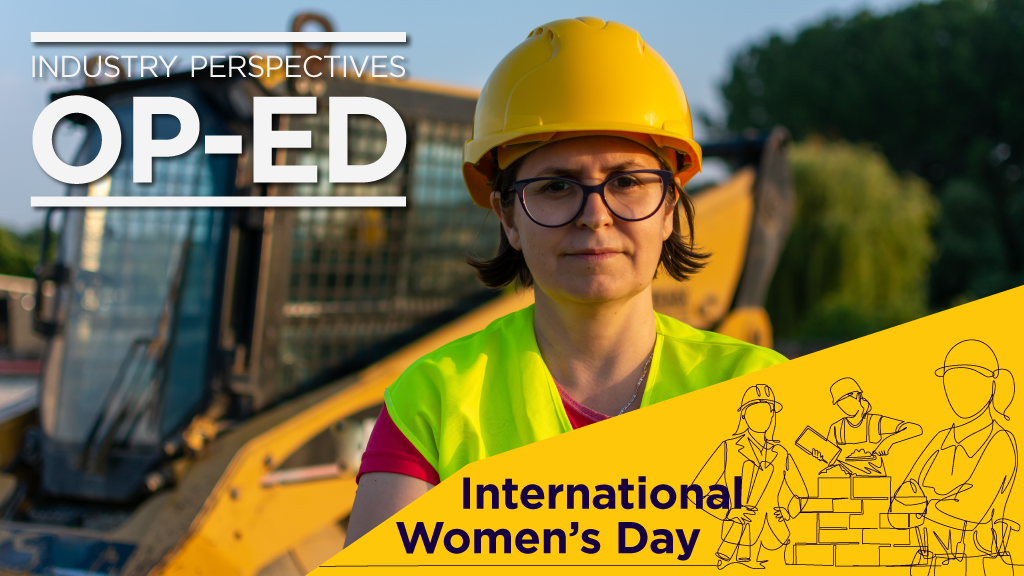Imagine a world where pay equity is built into the compensation system.
In the unionized skilled trades, well negotiated collective agreements play a significant equalizing factor.
A tradesperson is paid based on their level of experience from first-year apprentice to a turned-out journeyperson. Which is something we’re proud of.
But let’s read between the lines – women continue to account for under five per cent of the construction workforce. Watch that number decrease when we’re talking leadership positions.
To be clear, we’re not saying women have reached gender equality. Far from it. But, coming from two women who’ve worked through their own set of challenges and now hold the position of executive director of two provincial building trades councils (comprised of affiliated trade unions), we’re proud of where we are and where the unionized construction sector is going.
Why? Because we have members and leaders that are committed to real change that is making a difference.
“As a parent, accessing quality child care that works for my family is a real issue. I’ve sat through the Zooms where my son bursts into the room declaring the need to use the washroom and, while it usually breaks the tension in a meeting, it’s not ideal,” said Manitoba Building Trades executive director Tanya Palson. “And, in talking to members across Manitoba – they need flexible, affordable child care that allows them to go to work, build our infrastructure and know their children are being taken care of.
“And it’s any working parent that needs this. That’s why I’m proud of the work the building trades have done to bring forward real recommendations to our governments as we work through implementing child care in the province. Because we need solutions that work for working women.”
From child care, to proper fitting personal protective equipment, there are issues small and large that create barriers or sometimes mountains for women to overcome to go to work. Something as simple as a bathroom break.
“In B.C., we commissioned a report on the sanitation conditions of washroom facilities on jobsites because we know, they aren’t to standard. No longer OK with ‘it’s the way it is’ – we ran a successful campaign that brought awareness to the inequity not only of if bathrooms were clean but were they even available for women,” said BC Building Trades executive director Brynn Bourke. “We used humour to highlight a serious issue and it got the attention and support of not only our members but the provincial government in B.C. and we’re continuing to push because that’s the only way to make real change.”
Across the country, Build Together Chapters exist that bring together women of the building trades to mentor, support and learn about their own unique experiences and challenges working in the construction industry. Build Together chapters in B.C. and Manitoba have created scholarship opportunities, run awareness campaigns, advocated for menstrual products on construction sites, held training and participated in numerous workshops and conferences.
As female leaders in a male dominated industry, International Women’s Day provides a day where we press pause, we celebrate the hard-fought wins, losses and challenges we still know lay ahead. But we do it with the support of strong allies – male, female and non-binary – that will all benefit from a more diverse and inclusive workplace.
Happy International Women’s Day sisters.
Brynn Bourke is executive director of the BC Building Trades. Tanya Palson is executive director of the Manitoba Building Trades. Send Industry Perspectives Op-Ed comments and column ideas to editor@dailycommercialnews.com.











Recent Comments